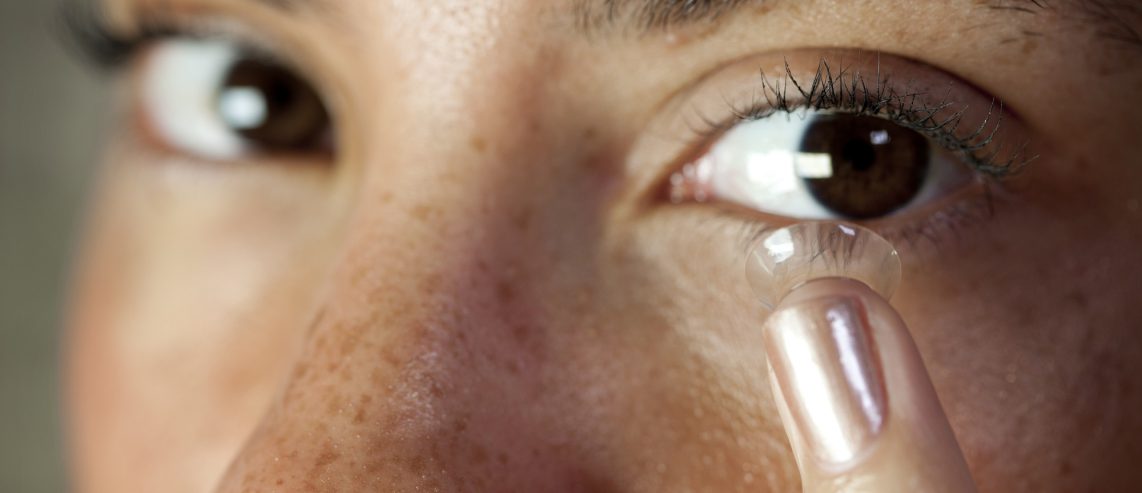Astigmatism is a condition by which the lens or cornea is more oval-shaped than round. This causes problems with how the eye bends light rays, and thus it blurs or distorts vision.
Unlike farsightedness or nearsightedness, astigmatism affects how the eyes focus at all distances. However, many people can have astigmatism combined with farsightedness or nearsightedness.
Astigmatism can cause blurry or distorted vision, headaches, the need to squint to see clearly, and trouble seeing at night.
Many patients ask, “Can you wear contacts with astigmatism?” The answer is yes. Though eye doctors used to prescribe glasses for astigmatism, new contact lenses offer great treatment options.
Laser eye surgery is also an option to correct irregularly shaped lenses and corneas.
Never Miss a Beat!
Subscribe to Our HealthBeat Newsletter!
Thank you for subscribing!
You can now select the specific newsletters you'd like to receive.
You are already subscribed.
Subscribe to more newsletters in our email preference center.
Sorry, an error occurred. Please try again later.
Get Healthy Tips Sent to Your Phone!
Do You Need Glasses or Contacts for Astigmatism?
Though an estimated one-third of Americans have astigmatism, it is often so mild that it doesn’t interfere with vision. Through a comprehensive eye exam, your eye doctor can tell whether you have astigmatism and how severe it is.
Then, your eye doctor can talk about your treatment options. Whether you choose glasses or contacts for astigmatism depends on your personal preference.
Compared to contacts, glasses are easy to put on and keep in place, but they are not ideal for sports. Contacts also have the benefit of providing a larger field of vision for people with astigmatism.
Best Contact Lenses for Astigmatism
Various types of specialized contacts treat astigmatism, including both soft and hard contact lenses, as well as nighttime lenses. However, soft contact lenses may not work for people with more severe astigmatism.
Soft toric contact lenses
Soft toric contact lenses have a special shape that counters astigmatism. To ensure they don’t rotate and stay properly positioned, these lenses get weighted at the bottom.
Soft toric contact lenses come in different types. Because of their different materials, some last much longer than others.
Depending on your preference, you may choose lenses that you replace, daily, weekly, biweekly, or even weekly. For example, those who prefer to wear contacts only sporadically (and glasses routinely) might choose daily lenses.
Hard contact lenses
Rigid contact lenses maintain their spherical shape, which corrects the oval shape of the cornea or lens in the case of astigmatism. Because these lenses are “gas permeable,” oxygen can still flow into the eye.
Though they are less comfortable, rigid contact lenses work better than soft lenses for severe astigmatism. The benefit is that technicians custom-shape these lenses to each individual eye. If your astigmatism is coming from your lens, the power of the contact can be altered to correct for this in most cases.
Overnight contact lenses
Ortho-K lenses are rigid contact lenses that people wear at night to reshape the cornea. Then, they remove the lenses in the morning. This treatment works for moderate astigmatism.
Over time, the therapy improves the shape of the eye. Sometimes, the treatment can permanently fix astigmatism. Usually, however, people continue to need the therapy, just not as often.
Though ortho-k lenses can be a safer alternative to surgery, infection is more common with these types of lenses than other alternatives. Children who may not clean the lenses properly are more at risk of infection than adults.
Sources
American Academy of Ophthalmology. What Is Astigmatism? Symptoms, Causes, Diagnosis, Treatment. Link
American Academy of Ophthalmology. What Is Orthokeratology? Link
American Optometric Association. Astigmatism. Link
Dr. Susan Vitale et al. Prevalence of Refractive Error in the United States, 1999-2004. Archives of Ophthalmology. Link
About UPMC Vision Institute
The UPMC Vision Institute is a national leader in the treatment of eye diseases and disorders. We seek to improve and restore your vision to help your quality of life, diagnosing and treating a wide range of conditions in both children and adults. Our treatments include both surgical and nonsurgical options. We also offer routine eye screenings and have full-scale optical shops. Find an eye expert close to you.
